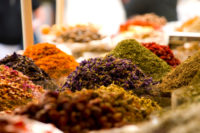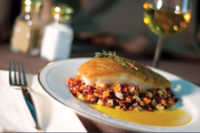Hamster Study: Red Yeast Rice's Hypocholeseterolemic Activity
February 17/Hong Kong/Gastroenterology Week -- As detailed in "Red Yeast Rice Increases Excretion of Bile Acids in Hamsters," reserachers in Hong Kong, People's Republic of China, sought "to investigate the hypocholesterolemic activity of red yeast rice (RYR) and its underlying mechanism. Three groups of hamsters were fed either the control diet or one of the two experimental diets containing by weight 0.1% RYR (0.1RYR) or 0.3% RYR (0.3RYR)."
"Blood (0.5mL) was collected from the retro-orbital sinus into a heparinized capillary tube at the end of week 0, three and six. Plasma lipoproteins were measured using enzymatic kits, while fecal neutral and acidic sterols were quantified using a gas-liquid chromatography. Plasma total cholesterol was reduced by 12% in 0.1RYR group and by 18% in 0.3RYR group compared with the control value. Similarly, plasma triacylglycerol was decreased by 11% in 0.1RYR group and by 24% in 0.3RYR group. Western blotting analysis demonstrated that RYR had no effect on sterol regulatory element binding protein 2, liver X receptor, 3-hydroxy-3-methylglutary-CoA reductase, LDL receptor, and cholesterol-7alpha-hydroxylase. HPLC analysis confirmed that RYR contained 0.88% monacolin K. It was recently found that RYR supplementation increased excretion of fecal acidic sterols by 3-4 folds compared with the control value," wrote K.Y. Ma and colleagues, Chinese University of Hong Kong, Department of Biochemistry.
The researchers concluded, "Hypocholesterolemic activity of RYR is mediated at least partially by enhancement of acidic sterol excretion."
Ma and colleagues published their study in Biomedical and Environmental Sciences ("Red Yeast Rice Increases Excretion of Bile Acids in Hamsters." Biomedical and Environmental Sciences, 2009;22(4):269-77).
For more information, contact K.Y. Ma, The Chinese University of Hong Kong, The Chinese University of Hong Kong, Dept. of Biochemistry, Shatin, New Territories, Hong Kong, China.
From the March 1, 2010, Prepared Foods E-dition
Looking for a reprint of this article?
From high-res PDFs to custom plaques, order your copy today!




